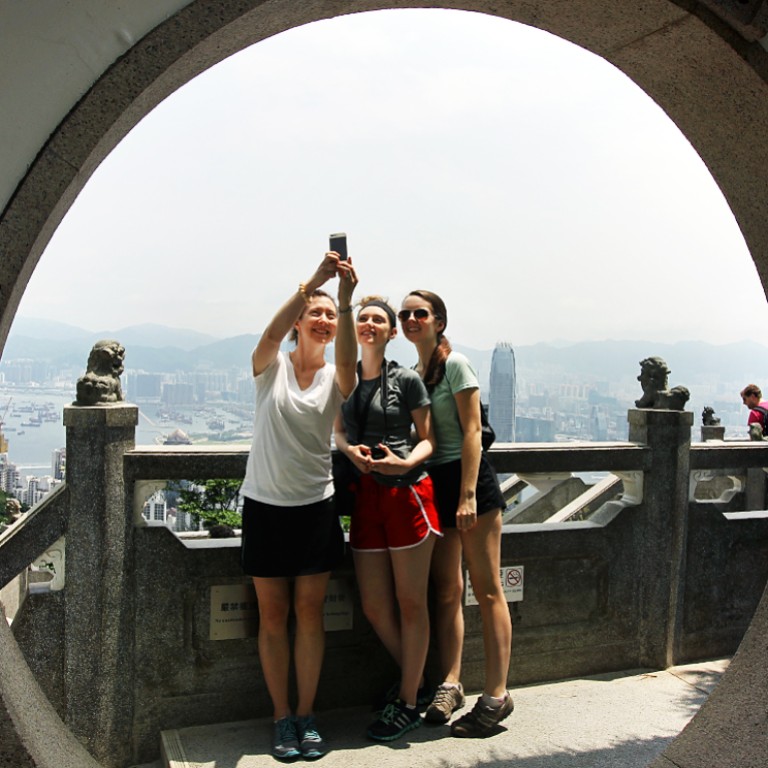
Can a Westernised expat kid ever be a true Hongkonger?
Zahid Mughal reflects on an upbringing that nurtures an attachment to the city yet has kept many in a bubble, largely cut off from local culture and politics - more like a tourist, in fact
As Hongkongers find themselves in the midst of discovering their own identities and starting to ask the question of what it truly means to be a or Hong Kong person, I find myself reflecting on the children of expatriates, many of whom have grown up and lived in Hong Kong all their lives, but who don't have the slightest chance of fitting the stringent criteria to be ascribed that title.
Can these individuals identify themselves as a Hongkonger? There is no denying that they call Hong Kong home, but this is a very different "home" from what the "localist" movements preach.
For most of them, it is a "home" that is not tied to the physical place, but is instead created and maintained within the metaphysical expatriate bubble - an isolated sphere, rarely exited.
Read more: Like it or not, Hong Kong, the 'expat brat' really does exist
I recently visited an old school friend who has returned to Hong Kong to work and, looking down from the balcony of his new studio flat in Sai Ying Pun, we were in agreement that in all our years growing up in the territory, we had never ventured to this area.
It was a far cry from the recreational clubs and tourist attractions that our younger selves had considered to be distinctly "Hong Kong" - an ideal which has become permanently ingrained in our identities and one which we are not afraid to call "home".
For most of them, it is a 'home' that is not tied to the physical place, but is instead created and maintained within the metaphysical expatriate bubble - an isolated sphere, rarely exited
Despite the fact that their attachment barely scratches the surface of what the city has to offer, expatriate children should not be denied the right to call Hong Kong home. After all, their years in the city vastly overshadow the brief holidays or university periods they spend in the countries from where their passports are issued.
Read more: Expat brats: the sad by-products of colonial Hong Kong society
Yet, having been raised in a bubble, and on a Westernised model of "international" schooling whose ethos advocates a move towards "global citizenship", they, through little fault of their own, develop only a basic understanding of Hong Kong's politics and culture.
Extrapolate this further and it's clear that the majority of this demographic remains largely uninterested in domestic affairs.
Indeed, I suspect that for many, including myself, the Umbrella Movement did not create the jolt of solidarity or stirring of emotions that it ought to have, considering so much of our lives has been spent here. This nonchalant attitude towards local politics, unfortunate as it may seem, runs at the very core of the "expat Hong Kong" identity and is difficult to change. Perhaps the constant reminder of that "expat" status also provides a subconscious escape route, such that we do not engage politically with the same vigour or interest as a "local".
I stress an "expat Hong Kong" identity, over what some would label a "third culture" identity. Unlike the latter, an "expat Hong Kong" identity does not glamorise a foreign upbringing by advocating higher cultural awareness and chameleon-like integration. Instead, it highlights exclusion and isolation, even as it stakes a claim to call Hong Kong home.
So where are such individuals positioned when it comes to defining a ? Due to their appearance, Westernised demeanour and inability to speak Cantonese, it is understandably difficult for a "local" to distinguish between a long-term expatriate and a tourist who has just stepped off the plane. Nor do the localist ideals of a Hong Kong identity leave any room to accommodate such people.
Yet, the admission that I have spent almost my entire life in Hong Kong and, yet, in the blink of an eye, can legitimately be reduced to the status of "tourist" is hard to take. Thinking this way also fills me with guilt. In such circumstances, arguing for any kind of right to call Hong Kong "home" seems increasingly futile.
